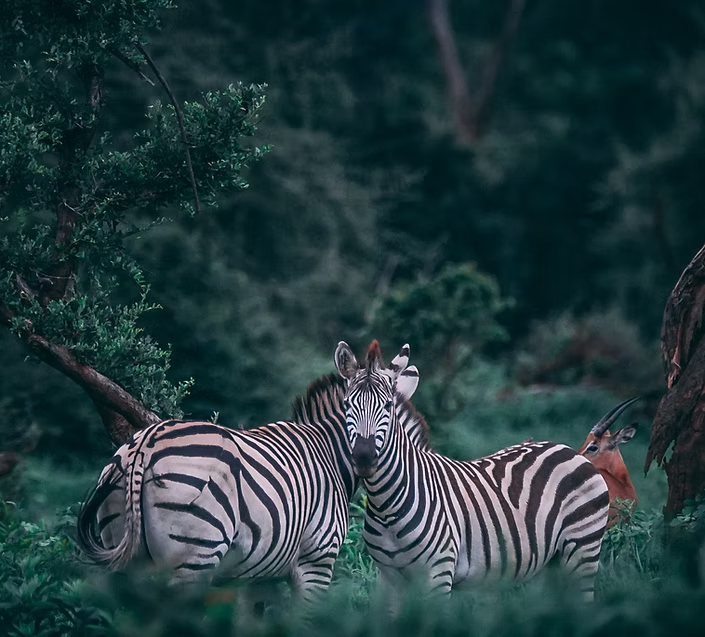
Explore Luxury Safaris in Botswana: Complete Travel Guide
Explore Botswana
Ultimate Botswana Safari Guide: Okavango, Chobe & More
Botswana: A Safari Lover’s Paradise
Botswana is a premier safari destination, known for its untamed wilderness, diverse wildlife, and luxurious lodges. Home to the world-famous Okavango Delta, vast Kalahari Desert, and wildlife-rich Chobe National Park, Botswana offers unmatched game-viewing experiences. Whether you're spotting elephants along the Chobe River, gliding through the delta’s waterways in a mokoro, or experiencing the culture of the San people, Botswana is an adventure-seeker’s dream.
Frequently Asked Questions: Botswana
The best time to visit Botswana depends on what you want to experience:
- May to October (Dry Season) – Best for wildlife viewing, especially in Chobe and the Okavango Delta. Expect sunny days and cooler nights.
- November to April (Wet Season) – Lush landscapes, fewer tourists, and excellent birdwatching, but some roads may be inaccessible due to rain.
- Okavango Delta – A UNESCO World Heritage Site, perfect for mokoro safaris and wildlife spotting.
- Chobe National Park – Home to Africa’s largest elephant population and famous for its river safaris.
- Moremi Game Reserve – One of Africa’s richest ecosystems, with diverse wildlife and landscapes.
- Makgadikgadi Pans – Vast salt flats where you can witness surreal landscapes and flamingo migrations.
- Central Kalahari Game Reserve – Remote desert landscapes and a chance to experience the San Bushmen culture.
- Tuli Block – A hidden gem with dramatic rock formations and excellent game viewing.
- Seswaa – A traditional dish made of slow-cooked beef or goat, shredded and served with pap (maize porridge).
- Vetkoek – Deep-fried dough filled with minced meat or served with syrup.
- Morogo – A wild spinach dish, often served as a side.
- Biltong – Air-dried, spiced meat (similar to jerky).
- Dikgobe – A dish of beans, corn, and sorghum, often eaten as a staple meal.
- Bogobe – A porridge made from sorghum, often served with milk or meat.
- Domestic Flights: The best way to reach remote safari camps is via charter flights.
- 4×4 Rentals: A must for self-drive safaris in national parks and game reserves.
- Guided Safari Tours: The most convenient and stress-free way to explore Botswana’s wildlife destinations.
- Public Transport: Limited outside major cities; buses connect towns, but not safari areas.
- Taxis & Transfers: Available in cities like Maun and Gaborone but not reliable for long distances.
- Visa-free for travelers from the U.S., Canada, the U.K., the EU, and many other countries for stays up to 90 days.
- Your passport must be valid for at least six months beyond your travel dates.
- Yellow fever vaccination is required if you’re arriving from a country with a risk of yellow fever.
- Travelers with children under 18 must carry an unabridged birth certificate (strictly enforced).
- The local currency is the Botswana Pula (BWP).
- It’s recommended to carry some USD for exchanges at airports, banks, or forex bureaus.
- Credit cards are widely accepted at hotels, lodges, and major shops but cash is needed in rural areas and markets.
- ATMs are available in cities like Maun, Gaborone, and Kasane but may be scarce in remote areas.
- English is the official language and is widely spoken, especially in tourist areas.
- Setswana is the national language and is spoken by most locals. Learning a few phrases like “Dumela” (hello) can be helpful.
- Greet people with a handshake and eye contact – greetings are important in Botswana’s culture.
- Modest dress is recommended, especially in villages and religious areas.
- Respect for elders is a strong cultural value – always address older people with courtesy.
- Photography of locals should be done with permission.
- Littering is frowned upon, especially in national parks and conservation areas.
- Restaurants: 10% if a service charge is not included.
- Safari Guides & Trackers: $10–$20 per person per day.
- Lodge Staff: $5–$10 per person per day, pooled among the team.
- Drivers & Transfer Services: $5 per ride is appreciated.
- Porters: $1–$2 per bag.
- For peak safari season (June–October): Book at least 6–12 months in advance for lodges and camps.
- For off-peak travel (November–April): Booking 3–6 months in advance should be sufficient.
- For budget-friendly options: Look for last-minute deals in the low season, but availability may be limited.
- Drones are prohibited in national parks without special permits.
- Plastic bags are banned in Botswana to protect the environment. Avoid bringing them in your luggage.
- Some medications (especially strong painkillers) require a doctor’s prescription to bring into the country.
- COVID-19 restrictions have been lifted, but always check for any updated health requirements before traveling.
Contact us at 281-229-0862 or admin@pointmetoparadise.com
